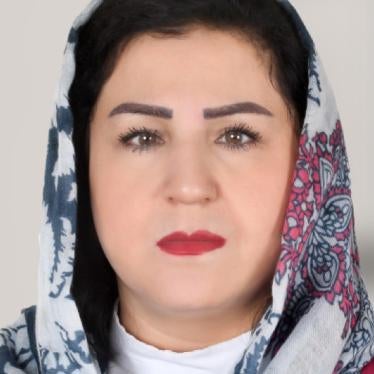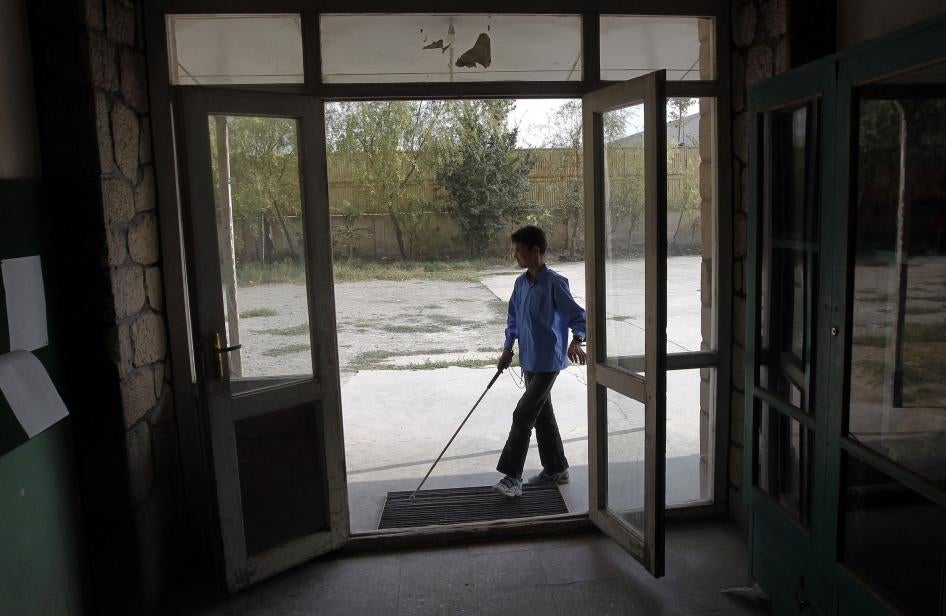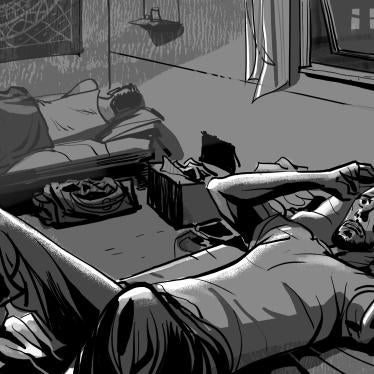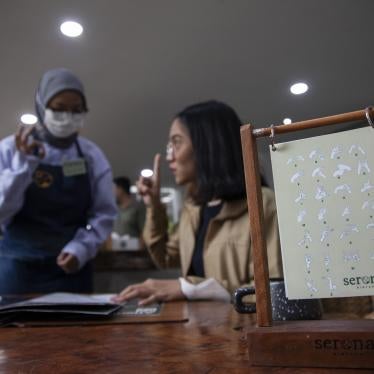Afghanistan started celebrating White Cane Safety Day in 2011, a day marked around the world to advocate for the rights of people with vision impairments.
But there are doubts on whether there will be white cane day activities in Afghanistan this year. As with many human rights issues in the country, protections for people with disabilities have weakened.
United States President Lyndon Johnson signed the US White Cane Law on October 15, 1964 to raise awareness about how people with vision impairments independently walk their environment. Six years later, the occasion became a global event.
A white cane is an important tool for people with visual impairment and a symbol of independence. The reason for its whiteness is to be a cue for vehicle riders to avoid harming them.
Globally, 1.1 billion people have been living with vision loss in 2020.
In Afghanistan, Rahyab, an organization of people with disabilities that has been providing education and rehabilitation for people with visual disabilities, started promoting the White Cane Day celebration to advocate for the rights of people with vision impairments.
People with disabilities in Afghanistan face discrimination, limited services, and a lack of a legislative or institutional framework to ensure their fundamental rights. For example, there are no provisions in Afghanistan's 2004 constitution prohibiting disability-based discrimination or legal obligations to establish reasonable accommodation in employment.
Despite the current situation in Afghanistan, human rights advocates will keep raising their voices on behalf of the 4.4 million Afghans with disabilities who are stranded in the country with limited access to services, or have fled as refugees to other countries.
Let’s hope for a brighter future.
Benafsha Yaqoobi is the 2022 HRW Marca Bristo fellow and Chair of the Rahyab disability rights organization.










